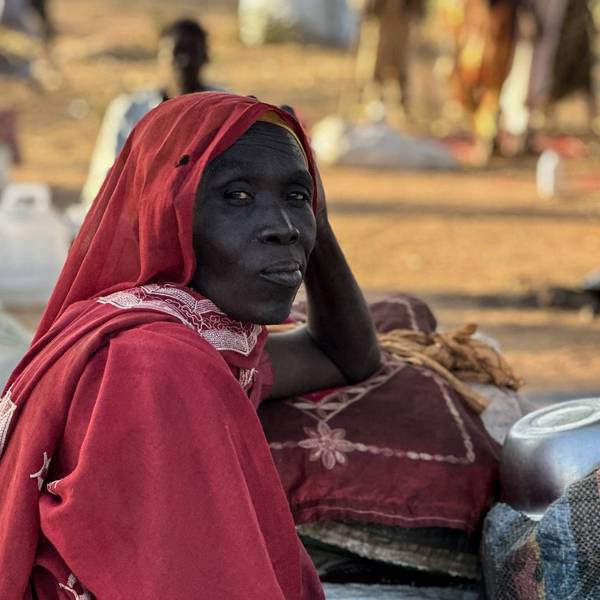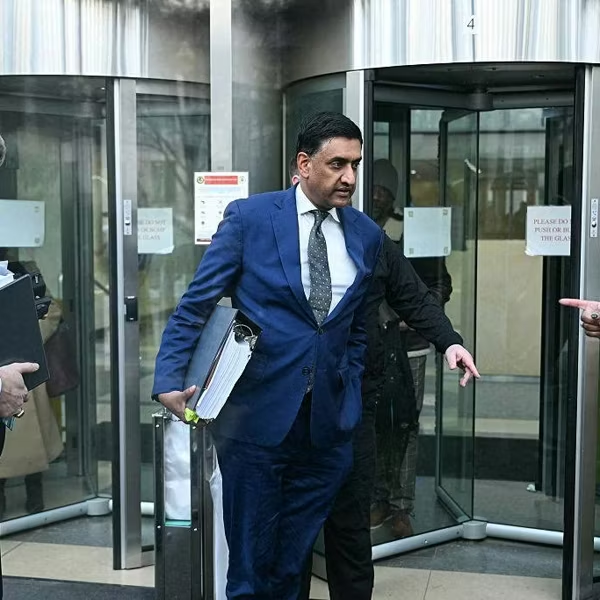Human rights advocates on Monday implored Eswatini authorities to launch a swift, rigorous, and independent investigation into the recent killing of renowned pro-democracy lawyer Thulani Maseko.
Unknown gunmen murdered Maseko at his home in the city of Luhleko on Saturday, just hours after Eswatini's unelected leader, King Mswati III, "warned those calling for democracy that more trouble was coming for them," according to a local newspaper. Since protests against Eswatini's absolute monarchy erupted in May 2021, dozens of people peacefully struggling for political reforms in the country formerly known as Swaziland have been killed by Mswati's security forces.
Numerous human rights experts have condemned Maseko's apparent assassination and demanded accountability.
"Thulani Maseko was a stalwart of human rights who, at great risk to himself, spoke up for many who couldn't speak up for themselves," United Nations High Commissioner for Human Rights Volker Türk said in a statement. "His cold-blooded killing has deprived Eswatini, Southern Africa, and the world of a true champion and advocate for peace, democracy, and human rights."
"Thulani Maseko was a stalwart of human rights who, at great risk to himself, spoke up for many who couldn't speak up for themselves."
After extending his condolences to Maseko's family, friends, and colleagues, Türk called on Eswatini officials to "ensure a prompt, independent, impartial, and effective investigation is held into his killing, in accordance with Eswatini's constitution and international human rights law, and to hold all those responsible to account in fair trials."
"Eswatini authorities must also ensure the safety and security of all Eswatini people, including human rights defenders, journalists, and political activists," the U.N. rights chief added.
Flavia Mwangovya, Amnesty International's deputy director for East and Southern Africa, echoed Türk.
A probe "should be carried out by authorities independent of the government and any institution, agency, or person who may be the subject of, or otherwise involved in, the investigation." The final results should be "made public, and aimed at ensuring that justice for Maseko's killing is not denied," said Mwangovya. "Maseko's family deserves justice; his killers must be brought to trial."
“The cold-blooded unlawful killing of Thulani Maseko offers a chilling reminder that human rights defenders, especially those at the forefront of calling for political reform in Eswatini, are not safe," she added. "If they are not being persecuted, harassed, or intimidated by the state, they are at risk of losing their lives."
Lamenting his "tragic" murder, Amnesty International Secretary-General Agnes Callamard noted that Maseko was instrumental to the "ongoing struggle for democracy in Eswatini and a wonderful steadfast partner" of the prominent rights group. "We are all devastated," she wrote on social media.
Maseko had previously been prosecuted by the state for his efforts to build a more just society. In 2014, Amnesty declared Maseko and veteran news editor Bhekithemba Makhubu "prisoners of conscience" after they were sentenced to two years behind bars on contempt of court charges stemming from the publication of articles in which they questioned the independence and integrity of the country's judicial system. Both men were acquitted on appeal and released from detention in 2015.
Following the arrest of hundreds of pro-democracy protesters in the summer of 2021, Maseko "provided legal support, crisscrossing the country to observe summary trials," Callamard pointed out.
At the time of his death, Maseko chaired the Multi-Stakeholder Forum, a coalition of trade unions, political parties, and civil society groups organizing for democratic reforms to which Mswati's autocratic regime is opposed. Eswatini's king, in power since 1986 and routinely accused of human rights violations, commands the army and police and has the authority to dissolve parliament and appoint or dismiss judges.
As Amnesty noted: "The unlawful killing of Maseko follows a spate of attacks on opposition leaders and pro-democracy activists, all of whom have been challenging the monarch and demanding political reform in the country since May 2021, including through nationwide protests. In response to the demonstrations, the government launched a brutal crackdown on human rights activism. Some politicians have been jailed merely for being suspected of joining calls for political reform."
Maseko was an attorney for two members of parliament standing trial for offenses allegedly committed during the pro-democracy uprising of 2021.
"Maseko's family deserves justice; his killers must be brought to trial."
Amnesty "will leave no stone unturned until justice has been rendered for Thulani's murder," Callamard vowed. "Those who killed and ordered his killing must be held to account."
Maseko's attackers shot through the window of his home at close range. He was reportedly struck twice and died in front of his family. According to a local newspaper, the same pair of police officers who responded to the crime scene after Maseko was killed had earlier staked out his house.
As Al Jazeera reported, "The government sent condolences to the family, saying Maseko's death was a 'loss for the nation' and that police were searching for the killers."
Southern Africa-based rights group Freedom Under Law, however, said that "no one can be misled by the cynical message of condolence put out on behalf of the government."
Maseko's death came hours after Mswati threatened pro-democracy activists with heightened repression.
"People should not shed tears and complain about mercenaries killing them," Mswati said Saturday. "These people started the violence first but when the state institutes a crackdown on them for their actions, they make a lot of noise blaming King Mswati for bringing in mercenaries."
Last week, Al Jazeera reported, the Swaziland Solidarity Network alleged that "the king had hired mercenaries, mainly white Afrikaners from neighboring South Africa, to help Eswatini's security forces suppress rising opposition to his regime."
The government has denied the accusation.
"Thulani Maseko was a key pillar in the struggle for freedom in Eswatini," said Amnesty's Mwangovya. "His death, which has already sent a chilling message to pro-democracy activists across the country, may signify an escalation in attacks against those who are openly seeking political reforms."
"The Southern Africa Development Community and the Eswatini authorities must demonstrate that they are committed to protecting everybody in the country, including human rights defenders, opposition leaders, and pro-democracy activists," she stressed. "Nobody should be attacked or threatened simply for being critical and pushing for political reforms."




